Apparently there are physiological reasons why Mile 20 is notoriously wretched. A 150-pound person can store about 2000 calories and uses around 100 calories per mile. At mile 20, the stores are depleted. No more glycogen. The body–starved for fuel–burns everything available. Think about a bitterly cold night, a fire place, and all that missing furniture. The next six miles are an unmitigated descent. Nutrition along the course helps as does proper training, great shoes, and crowd support. In the sense that a rum flavored life saver helps with the pain of childbirth. Which is to say, not at all. It’s just misery all the way down.
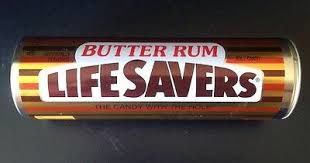
Leaving two options: rejection—I’m not actually in pain, I can do this, the cracking and popping sounds coming out of my knees, the blood in my shoes, the flames emanating from my ankles belong to someone else. That lung somebody coughed up on the side of the road? That lung is not mine. Or acceptance: Ah, pain. Welcome. I’ve been expecting you. May I offer you a nice beverage?
Either way, the runner and the pain are going to become intimately well acquainted with one another over the next six terrible miles. Acceptance is preferable to denial. Life is much to be endured, little to be enjoyed, wrote Dr. Johnson. Dr. Johnson may have been optimistic.
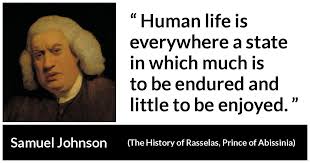
What about anxiety? Anxiety and pain may not live in the same room but certainly reside on the same floor. We deride anxiety. We work on reducing anxiety. We exercise, meditate, and eat healthy to reduce anxiety. As well we should. But let’s not ignore the easily overlooked benefits of anxiety. Because without anxiety, you wouldn’t be where you are. None of your accomplishments would have been achievable without a little angst.
There’s an inverted “U” curve relating anxiety to performance. If you don’t care at all, you don’t perform well. You might not bother getting out of bed or going to class. Like, Dude, what’s the rush? Who cares? And if your anxiety is off the charts, you can’t function. High anxiety can interfere with thought: What’s 36 times 11? I don’t know! I’m too nervous to figure it out!
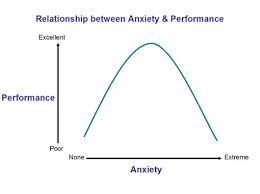
But the right amount of anxiety, like the right amount of pain killers after the removal of wisdom teeth, allows us to function. If you care enough, but not too much, about your results, you’ll be able to stay up late and study effectively. If you care enough, but not too much, about your marathon results, you’ll train appropriately. If you care enough, but not too much, about making a good impression, you’ll communicate properly.
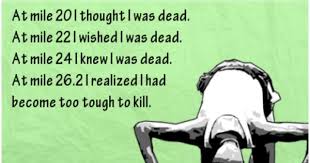
I wouldn’t wish overwhelming, paralyzing, dysfunctional anxiety on anyone. But given how ubiquitous anxiety is in our culture, I wonder if we should be constantly endeavoring to extinguish every trace.
Anxiety resembles a water balloon. Squeeze over here and the water just repositions itself over there. Get rid of the anxiety about getting admitted to college; now start worrying about doing well in first year classes. Get good grades in sophomore year; start worrying about being admitted to graduate school. Get into graduate school; start being concerned about having enough samoleans socked away to retire at age 70.

To paraphrase Jimmy Buffet, it’s Mile 20 somewhere. Let’s acknowledge, embrace, and articulate our anxiety just like we acknowledge, embrace, and articulate our learning differences, our sexual orientations, our preferences for the mountains over the seashore. It’s okay to be who we are. Or it certainly should be. We get in trouble if, at Mile 20, we pretend to be somewhere, or someone, else.
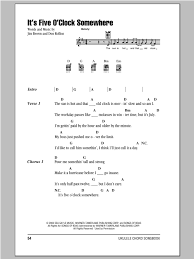



One thought on “Welcome. It’s Nice to See You.”
“If you care enough, but not too much, about your exam results, you’ll be able to stay up late and study effectively.”
In this sentence, caring is used as a stand-in for anxiety. Apathy is caring too little, but is extreme anxiety caring too much? Is caring the right amount equivalent with a moderate amount of anxiety? I don’t really think so. I care a lot about how I do on tests but am almost never even a little bit anxious. Maybe self-motivation is more sustainable for success than anxiety is? Fear of failure can push people in the wrong direction, too, obviously.